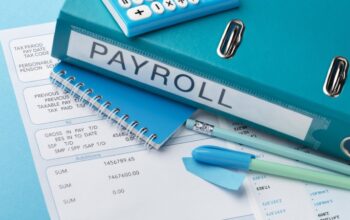“We invested in Chinese companies that traded on the Nasdaq in 2020 and 2021,” Yevgeny Shilenkov, deputy general director for active operations at Veles Capital, told Forbes. According to him, among these companies were those that were placed well in terms of profit and, like American companies, were trading in plus. However, pressure from the regulator on Chinese companies located in the United States does exist, Shilenkov agrees.
China has its sites, and the authorities’ position is that a local company that does business in their country should be located there, he said. In the IT Sphere, there is a certain war of technologies, relations between the United States and China are tense; Shilenkov continues: “The Chinese authorities believe that companies are getting rich on the Chinese, producing equipment at home and selling it abroad.”
A Chinese IPO will definitely carry more risks than an American, European, or even Russian, says Nikita Yemelyanov, director of the department for work with shares of Sistema Capital. There are three reasons for this; he points out:
- The low level of disclosure of information from Chinese companies
- The specifics of the companies themselves
- Regulatory risks
Chinese companies that go public are almost always focused on the domestic market and other emerging markets, Yemelyanov said. There is not so much data to assess the prospects for such markets, compared to developed countries (growth rates, competition, legislative features), he complains. This complicates the fair value measurement process, Yemelyanov explains.
In addition, the Chinese authorities are very painful to share control with foreign investors in the largest companies, he adds. “They seem to say:” We have for years protected the domestic market from global players and given you the ability to grow without competition is not to make you like that were sold to foreign investors “, – says the analyst. According to him, the Chinese authorities are not worried about the fall in companies’ shares: “Foreign (mainly American) investors, company founders, companies themselves suffer from this, but ordinary Chinese do not notice this.”
Foreign investors often do not buy shares of Chinese companies themselves, but American Depository Receipts (ADRs) in the so-called Variable Interest Entities, explains Capital Lab partner Evgeny Shatov. The risk is that the investor, in fact, does not own the rights to any of the company’s assets, the expert says.
For example, Alibaba uses a VIE structure that allows foreigners to buy VIE shares in Alibaba on the NYSE. Through American depositary shares, the company’s shareholders own a stake in Alibaba Group Holding Limited, registered offshore in the Cayman Islands. This company has a profit-making contract from parent Alibaba. But the shareholders do not have a stake in the assets of Alibaba, registered in China, Shilenkov said.
In the event of a force majeure situation (for example, a war of sanctions between the United States and China), an investor in ADR may suddenly become the owner of a shell company, warns a partner at Capital Lab. He adds that this risk is relevant for all companies from developing countries. As a rule, such countries have rather weak courts, Shatov notes: “They are not able to protect foreign investors from the arbitrariness of the authorities or local players with connections. “
Also Read: What Are The Soft Skills For Digital Transformation








